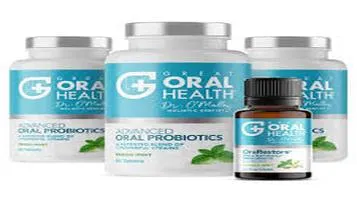A Comprehensive Review of the Most Effective Treatments for Bad Breath
Bad breath, or halitosis, can be effectively managed with a combination of good oral hygiene and lifestyle adjustments. Regular brushing and flossing are essential to remove food particles and plaque, while tongue cleaning helps eliminate odor-causing bacteria. Using an antibacterial mouthwash can further reduce bacterial buildup. Staying hydrated is crucial, as it helps maintain saliva flow, which naturally cleanses the mouth. Dietary changes, like reducing the intake of onions, garlic, and sugary foods, can also help. Chewing sugar-free gum can stimulate saliva production and mask odors temporarily. If bad breath persists, consulting a dentist or healthcare provider is important, as it may indicate underlying health issues requiring specific treatments. Regular dental check-ups ensure any dental problems, like gum disease or cavities, are promptly addressed.

Bad breath, medically known as halitosis, is a common yet distressing problem that affects millions of people worldwide. It can lead to social embarrassment, decreased self-confidence, and even anxiety. Understanding the root causes and the most effective treatments for bad breath is essential for anyone looking to maintain fresh breath and overall oral hygiene. This review delves into various treatments available, from simple home remedies to advanced medical interventions, to help you find the best way to combat this issue.
Understanding Bad Breath
Before diving into the treatments, it’s crucial to understand what causes bad breath. The primary causes include:
1. Poor Oral Hygiene: Inadequate brushing and flossing can leave food particles in the mouth, leading to bacterial growth and bad odor.
2. Dietary Choices: Foods like garlic, onions, and certain spices can contribute to bad breath.
3. Dry Mouth: Saliva helps cleanse the mouth. A condition called xerostomia, or dry mouth, can exacerbate bad breath.
4. Medical Conditions: Sinus infections, gastrointestinal issues, and diabetes can also cause bad breath.
5. Tobacco Products: Smoking or chewing tobacco products can leave chemicals in the mouth that cause bad breath.
Effective Treatments for Bad Breath
1. Maintaining Proper Oral Hygiene
The cornerstone of preventing bad breath is maintaining excellent oral hygiene. This includes:
- Brushing Twice Daily: Use fluoride toothpaste and a soft-bristle toothbrush to clean all surfaces of your teeth. Don’t forget to brush your tongue, as it can harbor bacteria.
- Flossing: Floss daily to remove food particles and plaque between teeth that a toothbrush can’t reach.
- Mouthwash: An antibacterial mouthwash can help reduce bacteria and freshen breath. Look for ingredients like chlorhexidine, cetylpyridinium chloride, or essential oils.
2. Regular Dental Check-ups
Visiting your dentist regularly – ideally every six months – can help identify and treat potential oral health issues before they exacerbate bad breath. Professional cleanings remove tartar and plaque that can’t be eliminated by brushing and flossing alone.
3. Hydration
Drinking plenty of water throughout the day helps maintain saliva flow, which is essential for cleaning the mouth and neutralizing acids produced by bacteria. Chewing sugar-free gum or sucking on sugar-free candies can also stimulate saliva production.
4. Dietary Adjustments
Certain foods are notorious for causing bad breath. Reducing or avoiding foods like garlic, onions, and spicy dishes can make a significant difference. Additionally, incorporating more crunchy fruits and vegetables, such as apples and carrots, can help clean the teeth and stimulate saliva production.
5. Quit Smoking
Tobacco products are a major contributor to bad breath. Quitting smoking not only improves your breath but also enhances your overall health, reducing the risk of gum disease, cancer, and other serious conditions.
6. Over-the-Counter Products
Several over-the-counter products can help manage bad breath. These include:
- Breath Freshening Sprays and Strips: These can provide temporary relief from bad breath.
- Tongue Scrapers: Using a tongue scraper can help remove bacteria and food particles from the tongue’s surface more effectively than brushing alone.
7. Herbal Remedies
Several herbs have been traditionally used to combat bad breath. These include:
- Parsley: Chewing on parsley can help neutralize odors due to its high chlorophyll content.
- Mint: Mint leaves can be chewed or brewed into tea for a refreshing effect.
- Tea Tree Oil: Adding a few drops of tea tree oil to your toothpaste or using it as a mouthwash can have antibacterial effects.
8. Medical Interventions
If bad breath persists despite good oral hygiene, it might be necessary to seek medical advice. Conditions like chronic sinusitis, gastrointestinal issues, or diabetes might require specific treatments. Your doctor or dentist may prescribe:
- Antibiotics: If an infection is causing bad breath, antibiotics can help eliminate it.
- Specialized Mouthwashes: Prescription-strength mouthwashes containing chlorhexidine or other potent antibacterial agents may be recommended.
- Treatment for Underlying Conditions: Addressing medical conditions like GERD, diabetes, or sinusitis can reduce bad breath.
Conclusion
Bad breath can be a troubling issue, but with the right approach, it is manageable. The key lies in maintaining excellent oral hygiene, staying hydrated, making wise dietary choices, and seeking professional advice when necessary. A combination of home remedies, over-the-counter products, and professional treatments can help you achieve fresher breath and improved confidence. Remember, the best treatment for bad breath is prevention through consistent and thorough oral care.






